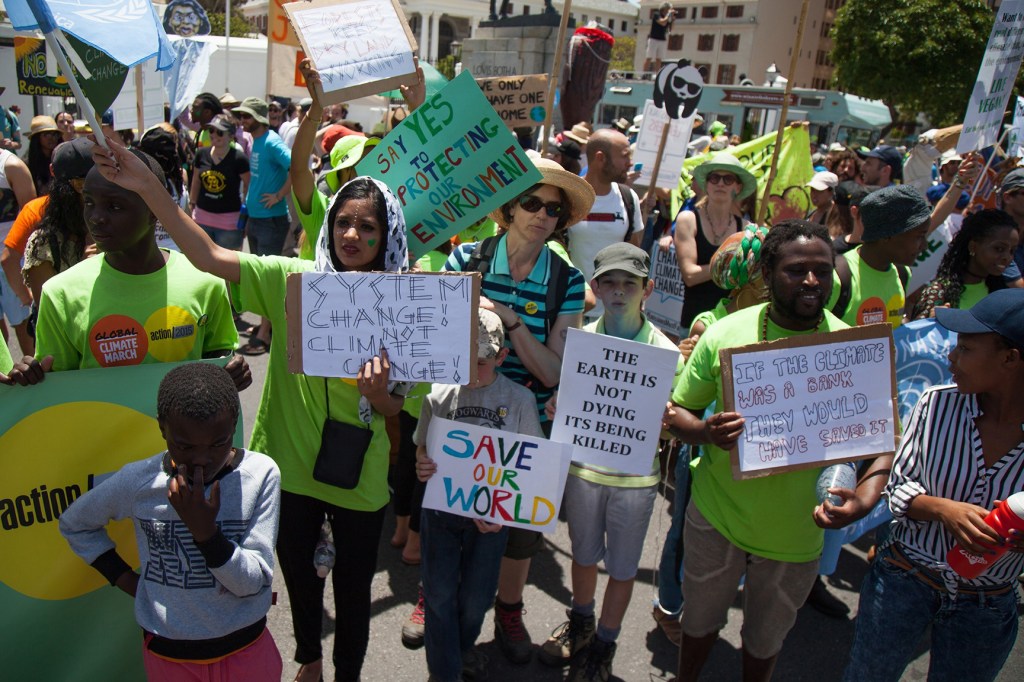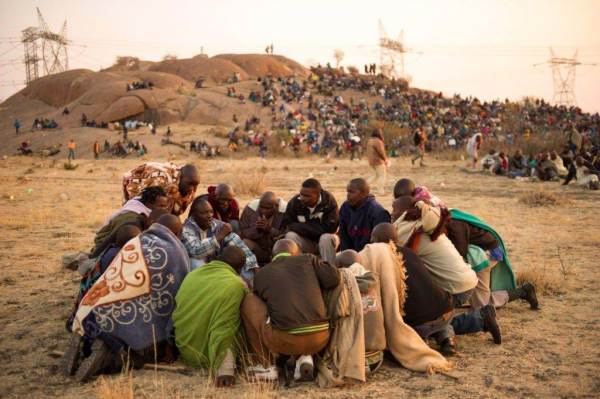
According to the most recent Front Line Defenders Annual Report on Human Rights Defenders at Risk, around the world 281 activists were targeted and killed in 2016. At least 136 of them were environmental rights activists. While extrajudicial killings like these attract immediate condemnation, corporate interests are using other, less obviously violent means to undermine the important work of these activists: Strategic Lawsuits Against Public Participation (SLAPPs) are used to intimidate, harass, and silence activists who are working to expose corporate injustices and human rights violations. As intended, such lawsuits have a clear chilling effect on activism, silencing critical voices and stifling accountability.
Of particular concern is the recent SLAPP suit against the Centre for Environmental Rights (CER), an environmental rights group in South Africa. CER helps communities hold businesses accountable for perpetrating natural resource exploitation. An Australian company filed a defamation suit against CER lawyers and a community activist for statements they allegedly made during a presentation at University of Cape Town, statements the company claims were defamatory. The local community had strenuously opposed the company’s proposal to exploit the mineral sands mine on South Africa’s West Coast.
The South African Constitution provides for the application of rights and responsibilities, meaning private actors are equally liable for failure to observe the bill of rights. This principle is enshrined in international norms and considered essential for protecting and respecting people’s rights, and remedying affronts to those rights. But the playing field is not equal. While there are strong laws aimed at protecting people’s rights, those laws too often fail to be applied. At the same time, big businesses have amassed great power and influence; they are armed literally and figuratively with high-value law firms, auditors, security experts, and investigators to defend their interests. Facing that kind of arsenal, it is difficult for individuals and organizations to fight back.
The use of SLAPP suits in South Africa is becoming a trend. Whether the company wins or loses, CER shoulders major expenses in defending themselves against a lawsuit that they see as being without merit, constituting avoidance for accountability. Too often, when large companies like these are pressed to account for environmental damage and violations, they resort to SLAPP suits and point to their corporate social responsibility ventures to distract from the harm they are accused of perpetrating.
Different jurisdictions have responded differently to these cases. The United States has outlawed these suits. As one judge presiding over a SLAPP suit observed, “The conceptual thread that binds [SLAPPs] is that they are suits without substantial merit that are brought by private interests to stop citizens from exercising their political rights or to punish them for having done so…The longer the litigation can be stretched out, the more litigation that can be churned, the greater the expense that is inflicted and the closer the SLAPP filer moves to success. The purpose of such gamesmanship ranges from simple retribution for past activism to discouraging future activism.”
As a country founded on constitutional values, South Africa gives environmental activists the option to leverage the constitution as a defense against these suits. But to effectively push back against these burdensome legal challenges, organizations need other ways to make corporate interests face the political, social, and economic costs of masking their violations under the guise of reputational damage. First, South Africa needs to revise court procedures to make it easier for judges to scrutinize frivolous lawsuits without dragging the defendants into court. Second, civil society must recognize that SLAPP lawsuits are not isolated, but are part of a broad and purposeful strategy to distract and disable environmental activists and empower corporate interests. Where possible, activists should draw attention to these companies’ actions in their countries of origin, so that shareholders can see the (perhaps unintended) impact of their investments.
Social justice activists are operating under challenging circumstances everywhere in the world, putting them at risk of SLAPP suits. With these activists and their organizations already under significant pressure—subjected to slander, suspicion, criminalization, and financial strain; and forced to justify their work and very existence—protracted SLAPP suits are designed to erode their resources and commitment.
As philanthropy considers how to best support and build resilience for social justice activists and institutions, it is critical to consider their ability to withstand this kind of legal pressure. In times of crisis, organizations often turn to emergency response funds, but these funds are overwhelmed. As funders, we need to have open conversations with our grantees about how they can be prepared before a crisis erupts. Are we providing enough support to our partners to be able to create a litigation fund or to shore up institutional reserves? Do they have legal insurance? Is there an adequate pool of pro bono law firms that can provide assistance to social justice and environmental groups? And how can philanthropy use its influence in corporate circles to encourage better practice?
Advocates and activists may always be vulnerable when facing big businesses with deep pockets and seemingly bottomless profits, but they don’t have to be unprepared for the challenge.


